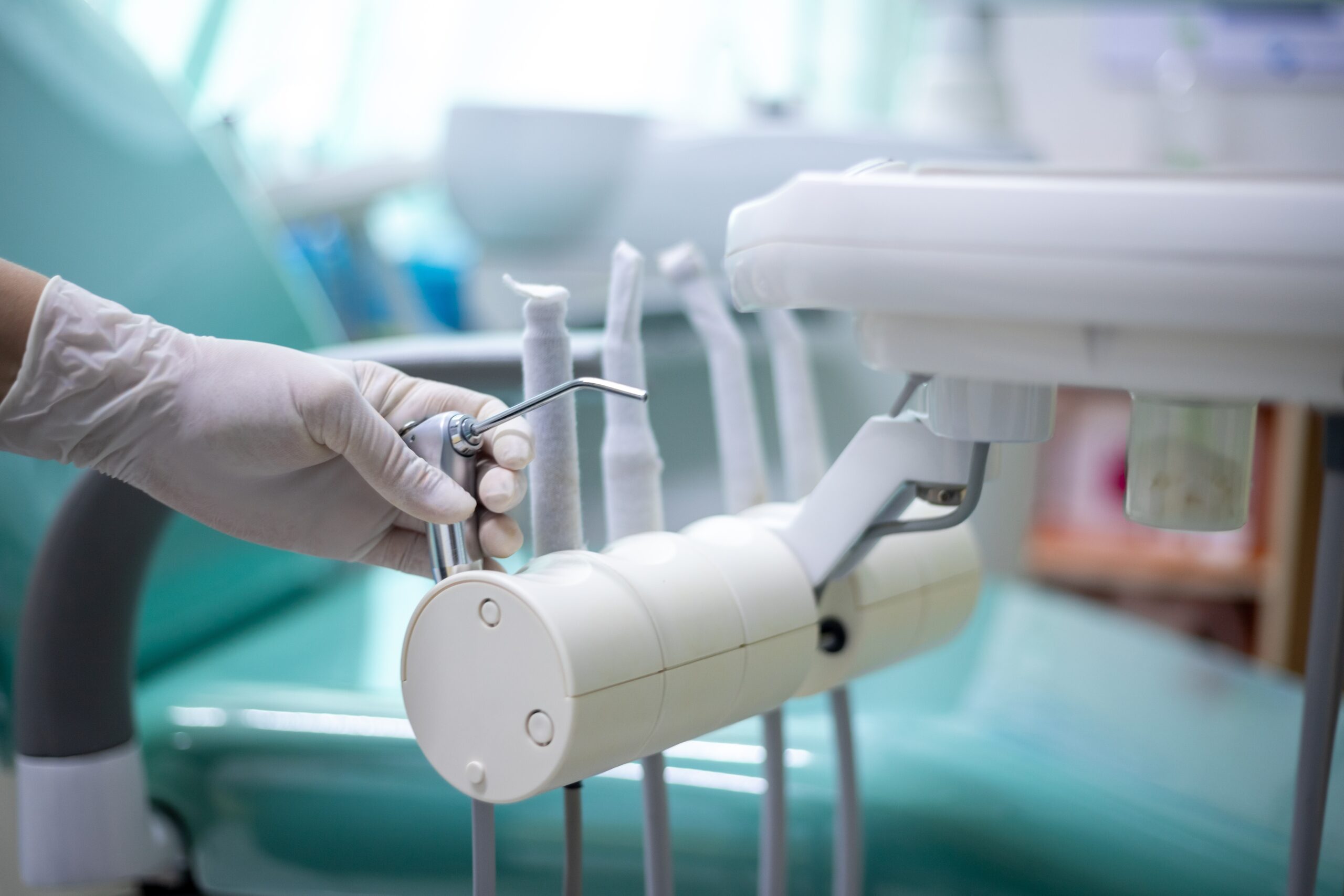
☝️ At a glance
- Becoming a dentist requires completing the NEET exam, followed by a Bachelor of Dental Surgery (BDS) degree, which takes about five years of study, including practical clinical training.
- Dentists can pursue specialization after completing their BDS, with options like oral surgery, pediatric dentistry, and orthodontics, which increase earning potential and career prospects.
- The demand for dentists in India is high, offering job stability, good salary prospects, and opportunities in private practice, hospitals, or academia.
- Skills such as manual dexterity, attention to detail, empathy, and communication are essential for success in the dental profession, in addition to technical knowledge.
Becoming a dental doctor is a rewarding and respected career choice for many students in India. Dental doctors, or dentists, are healthcare professionals who specialize in diagnosing, treating, and preventing oral health issues. Their expertise extends across various dental specialties, including oral and maxillofacial surgery, pediatric dentistry, and dental hygiene.
In this article, we will explore the steps you need to take to become a dentist in India, the eligibility criteria, discuss the various dental specialties, and provide insights into dental education, entrance exams, and the career outlook for dental graduates.

Become a global doctor with MBBS abroad!
Studying abroad can be affordable and stress-free with futureMBBS:
- World-recognized universities with English-taught programs
- On-site support in partner university cities
- Guaranteed placements & internships for hands-on experience
From selecting universities and supporting you with the application process to orientation and finding accommodation – we are at your side.
What is a dental doctor?
A dental doctor is a qualified professional who practices dentistry, a branch of medicine concerned with the diagnosis, prevention, and treatment of dental diseases and conditions. Dentists are highly trained to address issues like gum diseases, tooth decay, dental trauma, and cosmetic concerns, ensuring that patients maintain good oral hygiene and optimal oral health.
In addition to general dental care, some dentists choose to specialize in areas such as oral and maxillofacial surgery, pediatric dentistry, dental hygiene, and oral pathology. These specialties require additional training and certification but can open doors to advanced career opportunities.
Why choose a career in dentistry?
Dentistry offers numerous benefits that attract many students, including:
Job stability: Dental care is a vital aspect of healthcare systems worldwide. The demand for qualified dentists is consistently high, especially as more people become aware of the importance of oral health.
Good salary: The average salary of a dentist in India varies depending on their level of experience, specialization, and the type of practice they work in. However, experienced dentists in private practice can earn a lucrative income.
Job satisfaction: Many dentists find immense satisfaction in helping their patients maintain good oral hygiene and improve their overall health. The ability to work directly with patients and the potential to run your own dental clinic adds to the appeal of the profession.
Career flexibility: Dentists have a range of career options, from private practice and government hospitals to academia and research. You can also specialize in areas like maxillofacial radiology oral or public health dentistry.
Steps to become a denstist in India
Complete high school with science background
To begin your journey to becoming a dental doctor, the first step is to complete your high school education with a science stream. Subjects such as physics, chemistry, and biology are crucial for building a foundation in the medical sciences. A strong understanding of these subjects will prepare you for the challenges of dental school and the dental entrance exams.
Take the National Eligibility cum Entrance Test (NEET)
In India, to get admission to dental schools and dental colleges, you must clear the NEET (National Eligibility cum Entrance Test). NEET is a highly competitive exam that assesses your knowledge in subjects like physics, chemistry, and biology. Dental schools require students to achieve a certain cutoff score on the exam to qualify for admission to the undergraduate dental program (BDS).
The NEET exam is crucial for dental school acceptance rates and for getting into the best dental colleges. After clearing NEET, you can apply to various dental colleges and pursue your Bachelor of Dental Surgery (BDS) degree.
Enroll in an undergraduate dental program (BDS)
After qualifying for the NEET, you can join dental courses in reputable dental colleges across India. The BDS program (bachelor's degree) typically lasts for five years and includes both theoretical studies and practical clinical experience. During this time, students gain in-depth knowledge of subjects such as oral health, dental hygiene, dental procedures, oral surgery, and clinical dentistry.
Pursue postgraduate studies or specialization
After completing the BDS (bachelor's degree), some dental graduates opt to pursue further studies to specialize in a specific area of dentistry. Postgraduate programs are available in dental specialties such as oral and maxillofacial surgery, pediatric dentistry, oral pathology, and public health dentistry.
Specializations generally take 3 years to complete, and students may need to pass a dental admissions test to gain admission to these programs.
Obtain a dental license
To practice dentistry legally in India, all dental graduates must obtain a dental license from the Dental Council of India (DCI). This certification is mandatory for practicing as a dentist in both private and government settings. Dentists can then apply for positions in dental clinics, hospitals, or even set up their own private practice.
Pursue further training or residency
Many dental professionals choose to continue their education by pursuing a dental residency. Residency programs provide hands-on experience in clinical settings, allowing dentists to further refine their skills. Dental residency programs focus on specialized areas like oral surgery or dental medicine and are essential for anyone looking to become a qualified dentist in a specific area of dental specialties dentistry.
Eligibility criteria to join dental courses
In India, the Dental Council of India (DCI) regulates dental education and admissions. Below are the eligibility requirements for different dental programs.
Eligibility for BDS (Bachelor of Dental Surgery)
Educational qualification: Candidates must complete 10+2 with biology, chemistry, and physics from a recognized board, with a minimum of 50% marks.
NEET-UG: Candidates must clear the NEET-UG exam and secure the required cut-off marks to gain admission to dental schools.
Counseling: Admissions are based on NEET ranks, and students are selected through a counseling session.
Eligibility for MDS (Master of Dental Surgery)
BDS Degree: A completed BDS degree (bachelor's degree) from a DCI-accredited dental college is required.
NEET-PG: Candidates must clear the NEET-PG exam for MDS admission.
Internship: A one-year mandatory internship after BDS is required before starting MDS.
Eligibility for diploma and certificate courses
Educational qualification: Candidates must complete 10+2 with biology as a core subject to enroll in undergraduate diploma or certificate programs.
Specializations: These courses focus on areas like pediatric dentistry, oral health, and dental hygiene, offering practical skills for enhanced practice.
What skills are needed to become a successful dentist?
Becoming a successful dentist requires more than just technical knowledge; several key skills are necessary to excel in this profession:

Manual dexterity: Dentists must be precise in their work, especially when performing intricate dental procedures. A steady hand and good eye-hand coordination are crucial.
Attention to detail: Dentistry involves examining patients' oral health and diagnosing conditions accurately. The ability to notice even the smallest issues is essential.
Communication skills: Dentists need to explain complex procedures and treatments to patients in a clear and reassuring manner. Good communication skills help build trust with patients.
Empathy and patience: Many patients experience anxiety about dental visits. A compassionate and patient demeanor helps create a positive environment for treatment.
Time management: Managing multiple patients efficiently while maintaining a high standard of care is essential, especially for those working in private practice.
Types of dental specialties
The field of dentistry is vast, and there are many areas where one can specialize:
Oral and maxillofacial surgery: These surgeons handle complex surgeries related to the mouth, jaw, and face. Specializing in this area can open doors to lucrative opportunities in hospitals and private practice.
Pediatric dentistry: This specialty focuses on the oral health of children, including preventive care and treatment of dental problems unique to younger patients.
Orthodontics: Orthodontists specialize in diagnosing and treating misaligned teeth and jaws. This specialty often involves the use of braces and other corrective devices.
Oral pathology: Dentists specializing in oral pathology diagnose diseases affecting the mouth and its surrounding areas, often working closely with maxillofacial radiology oral specialists.
Periodontics: Focuses on treating gum diseases and other disorders affecting the structures supporting teeth.
Public health dentistry: Dentists in this specialty focus on promoting good oral hygiene and preventing dental diseases at a community level, through education and public health policies.

Study medicine abroad with 100% support!
futureMBBS offers full support to make your dream of studying medicine abroad a reality.
- Hassle-free admission guidance
- Fast-tracked visa processing
- Post-arrival support, including accommodation assistance
Career options for dentists
A career in dentistry offers various fulfilling paths beyond traditional private practice. Here are some of the top career options for dentists:
Private practice: Many dentists choose to set up their own dental clinic or collaborate with other professionals in a group practice. Opening a private practice requires careful planning, considering factors like location, market potential, and obtaining the necessary licenses and permits.
Hospital dentistry: Both private and government hospitals offer opportunities for dentists to work in outpatient dental departments. Dentists can treat patients in-house, providing dental care alongside other medical professionals.
Academic dentistry: Teaching is a great option for dentists interested in education. As an academic dentist, you can educate the next generation of dental students at a dental school or university, combining research, patient care, and community involvement in a fulfilling career.
Public Health dentistry: This career path focuses on designing dental policies that improve oral health at a community level. Dentists in this field collaborate with other healthcare professionals to create public health programs and raise awareness about good oral hygiene.
Research in dentistry: This career path often involves working for large dental companies or academic institutions, contributing to advancements in dental medicine and patient care. It may also require additional training or specialization in areas like oral pathology or maxillofacial surgery.
Dental consultant: Experienced dentists can offer expert advice in various specialties, such as dental hygiene, oral surgery, or pediatric dentistry. Consultants often work with dental clinics or corporations to provide guidance on dental procedures and clinic management.
Dental sales and marketing: For dentists with a knack for business and communication, roles in dental product sales or marketing can be a great fit. These positions allow dentists to work with companies that sell dental equipment, materials, and technology, providing them with valuable industry insight.
Forensic dentistry: For those interested in law and forensic science, forensic dentistry involves identifying human remains or helping in criminal investigations using dental records. This niche career combines clinical expertise with investigative work.
Dental therapist or hygienist: As a dental hygienist, you can focus on preventive care, including cleaning teeth, applying sealants, and educating patients on oral hygiene. This role is crucial in supporting dentists and helping maintain public oral health.
Dentist salaries
In terms of dentist salaries, dentists in private practice generally earn more than those in government hospitals. However, starting salaries for dental graduates can range from ₹3.5 lakh to ₹5 lakh annually, with the potential to earn more based on experience, specialization, and the type of practice. Experienced dentists in specialized fields such as oral and maxillofacial surgery can earn significantly higher incomes.
How to become a dentist in India
Becoming a dentist in India requires dedication, preparation, and a clear understanding of the steps involved in the process.
1. Choose the right subjects after class 10
After completing class 10, candidates must select the science stream in class 12, with Physics, Chemistry, and Biology as mandatory subjects. These are the foundational subjects required for dental school and for preparing for the NEET exam.
2. Start NEET preparation early
The most significant challenge in becoming a dentist is preparing for the National Eligibility cum Entrance Test (NEET). This is the entrance exam for admission to dental colleges across India. To improve your chances of success, it’s important to begin your NEET preparation as early as class 11.
With NEETsheet by futureMBBS , you can access comprehensive NEET preparation courses that cover everything from test series to live classes, and unlimited mock tests. It offers students the opportunity to prepare efficiently for the exam, ensuring that they are fully equipped with the right knowledge and skills to succeed.
3. Master the NEET exam pattern
Understanding the exam pattern is essential for successful dental school applicants. The NEET exam tests your knowledge in subjects like physics, chemistry, and biology, and understanding which topics are frequently asked can help you strategize your study plan. With NEETsheet, you can get access to mock tests and practice papers that mimic the real exam, helping you familiarize yourself with the format and boosting your confidence.
4. Gain admission to a dental college
After successfully clearing the NEET exam, candidates can gain admission to a dental school for a BDS (Bachelor of Dental Surgery) degree. This undergraduate program spans 5 years, with the first 4 years focusing on core dental education and the last year being a mandatory internship at a dental clinic or hospital. During this time, students will gain hands-on experience in clinical dentistry, treating patients and working alongside experienced dentists.
5. Pursue specialization (MDS)
Once you’ve completed your BDS, the next step in your journey to becoming a qualified dentist is pursuing a Master’s degree, such as MDS (Master of Dental Surgery). This 3-year program allows you to specialize in areas like oral and maxillofacial surgery, pediatric dentistry, periodontology, or other dental specialties. Specializing after completing your dental degree opens doors to advanced roles in oral surgery or dental practice as a specialized surgeon.
Classroom preparation and coaching
The road to becoming a dentist can be challenging, but with the right preparation, it’s achievable. Here are some critical steps to ensure success:
Choose the right subjects in class 12: Make sure to pick Physics, Chemistry, and Biology as your core subjects.
Start early: Begin preparing for NEET as early as class 11 to give yourself an edge over others.
Join coaching programs: Coaching centers can provide structured learning, mock exams, and expert guidance.
Create a study schedule: Make sure to divide your study time equally among the three core subjects. Focus on understanding the concepts rather than rote memorization.
Analyze the NEET exam pattern: Understand the types of questions asked, frequency of topics, and areas that require more attention.
Conclusion
In conclusion, becoming a dental doctor in India is a fulfilling and challenging journey that requires dedication, hard work, and a strategic approach to education and training. From completing high school with the right subjects to clearing the NEET exam, enrolling in a reputable dental college, and possibly specializing in a dental field, every step builds towards a rewarding career. With numerous opportunities in private practice, hospitals, academia, and specialized fields, dentistry offers job stability, a good salary, and the satisfaction of improving people's health. Whether you aspire to run your own practice or work in specialized areas such as oral surgery or pediatric dentistry, the path to becoming a dentist is both challenging and rewarding, making it an excellent choice for those passionate about healthcare.
Your medical career abroad starts here!
Thinking of pursuing MBBS abroad? Don’t just dream it, do it!
Start your MBBS journey!People also liked:
NEET 2025 exam centres: Check state-wise list with codes
How many MBBS seats in India: 2024 update
NEET course: preparation for medical success
NEETsheet: Making NEET preparation affordable in India with complete courses at just ₹990
How NCERT Books Can Transform Your NEET Grades!
Frequently asked questions (FAQs)
How many years does it take to become a dental doctor?
Becoming a dental doctor in India typically takes a minimum of 5 years. This includes completing the Bachelor of Dental Surgery (BDS) degree, which is a 5-year undergraduate program. Afterward, if you choose to pursue a specialization (MDS), it will take an additional 3 years.
Do dentists need NEET?
Yes, dentists in India must clear the National Eligibility cum Entrance Test (NEET) to gain admission to dental colleges for the BDS program. NEET is a mandatory entrance exam for all medical and dental courses in India.
How to become a dental doctor after 12th?
To become a dental doctor after completing 12th, follow these steps:
Ensure you have studied Physics, Chemistry, and Biology in 12th grade.
Clear the NEET exam for admission to a dental college.
Enroll in a 5-year BDS program at a recognized dental college.
After completing your BDS, you can pursue a Master's degree (MDS) for specialization if desired.
Is MBBS required for a dentist?
No, an MBBS degree is not required to become a dentist. Instead, dentists pursue a BDS (Bachelor of Dental Surgery) degree. While both MBBS and BDS are medical degrees, MBBS focuses on general medicine, while BDS focuses on dental care and surgery.
Can a dentist practice surgery?
Dentists who specialize in oral and maxillofacial surgery have the training and certification to perform surgeries related to the mouth, jaw, and face. However, general dentists who have completed a BDS program do not perform major surgeries outside of dental procedures. To become a dental surgeon, additional training and a specialization in oral and maxillofacial surgery are required.




